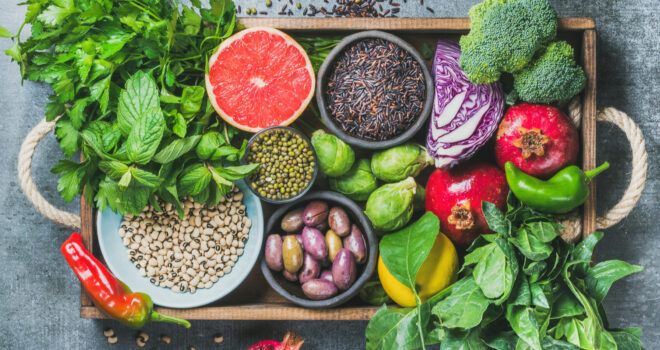Certain dietary changes can increase the nutritional quality as well as reduce the environmental impact of what we eat. A recent study is trying to determine whether these changes are similar across Europe.
Protecting our environment has become a top concern. Food consumption accounts for 20 to 30% of the environmental burden of European households.
So, we need to think about eating responsibly too. But are the changes we need to make in terms of our food consumption to achieve a high-nutritional-quality diet while reducing greenhouse gases similar across the board in Europe? A modelling study published in the European Journal of Clinical Nutrition tried to answer this question by identifying and comparing dietary changes in 5 European countries, while also taking into account cultural and gender specificities.
A balanced and sustainable diet
According to the researchers, adopting a diet that faithfully follows dietary recommendations, without taking account of the environmental burden, may increase greenhouse gas emissions. The researchers believe that, in theory, a diet that reduces greenhouse gas emissions by 62 to 68% and that is also nutritionally adequate is feasible. However, the cultural acceptability of such a diet could be an issue. And finally, according to the study’s results, some of the changes in consumption that need to be made are similar across European countries and genders, while others vary depending on these criteria.
Plant-based food in the spotlight
There were similarities between the various countries in the study: improving the nutritional quality of our diet means substituting foods with foods from other food groups. The substitutions between foods within the same food group, however, will ultimately help make the difference and reduce food-related greenhouse gas emissions.
Moreover, everyone, regardless of their gender or country, should adopt a diet that is high in fruit, vegetables and starchy foods and low in sugar, fat and alcohol. This conclusion yet again stresses how important it is that we increase our intake of plant-based food. On the other hand, the trend in terms of the consumption of animal products is not the same for all the countries and genders.



 Bell pepper
Bell pepper  Carott
Carott  Vegetable garden: growing chicory
Vegetable garden: growing chicory 









